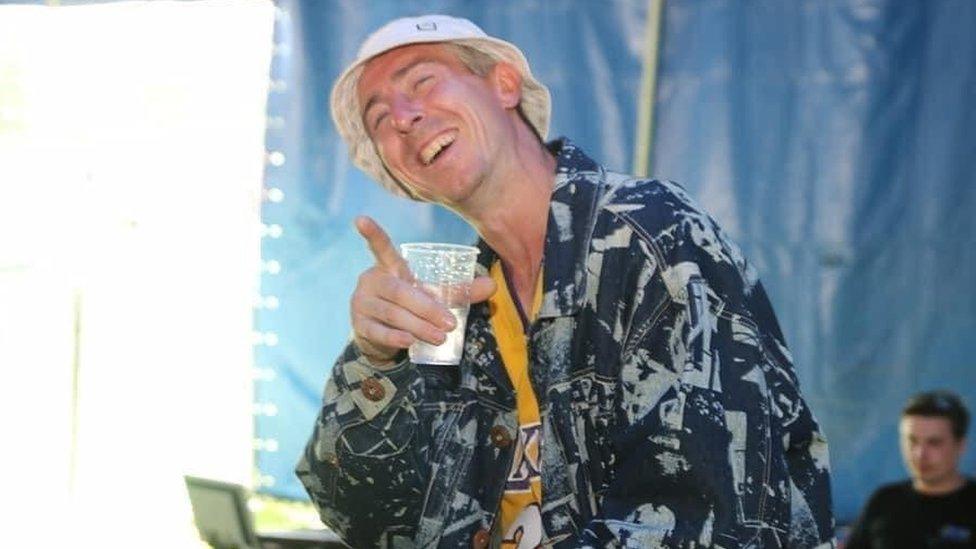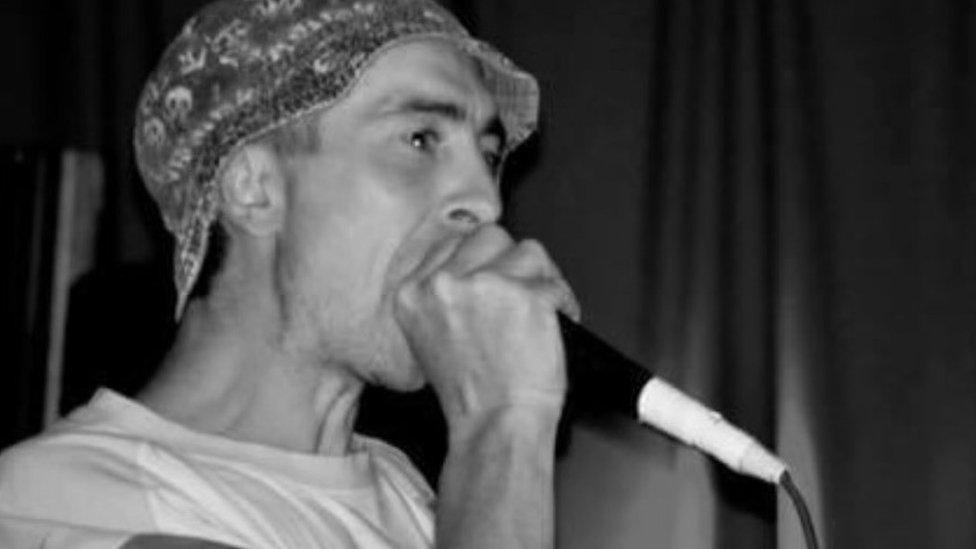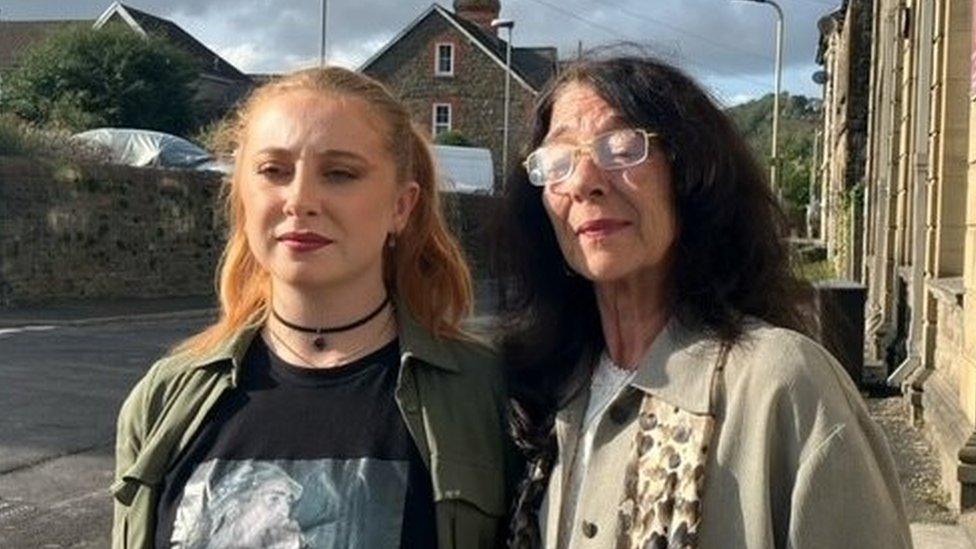South Wales Police missed chance to prevent man's death
- Published

Leighton Dickens took his own life at his Cardiff flat hours after leaving an A&E
A police force's failure to stop a mentally ill man leaving a hospital was a "missed opportunity", an inquest jury concluded.
Leighton Dickens, 39, took his own life at his Cardiff flat hours after leaving an A&E.
A Pontypridd Coroner's Court jury reached a unanimous conclusion after an eight-day inquest.
South Wales Police said it had "acknowledged the jury's conclusion" that there was a missed opportunity.
The inquest heard Mr Dickens became increasingly unwell on 13 October 2020, while at partner Rhiannon Williams's home.
She said he was "not rational" and feared for her safety.
After deciding to drive him home he began self-harming, and grabbing at the steering wheel and handbrake.
In a recording she made she could be heard pleading with him not to do this.
In it he detailed how he intended to kill himself and she was heard telling him she was taking him to hospital.
As she drove on Cowbridge Road West in Cardiff she rang 999.
On seeing a police van she flagged it down and it took him to University Hospital of Wales.
A blood test showed Mr Dickens was slightly over the drink-drive limit and there were trace elements of cocaine in his blood.

A jury said not keeping him at a hospital was a "missed opportunity" by police
On arriving at the hospital the court heard he became argumentative.
The jury was told the police felt their presence was making things worse, and that by leaving him with Ms Williams they believed they were leaving him with a responsible adult.
Not thinking Mr Dickens was a risk to himself or others, they did not detain him under the Mental Health Act.
Mr Dickens asked the two officers, PC Brittany Brewer and PC Sarah Musgrove, if he could leave at 06:05 BST the following morning. One of them was heard in a recording saying: "I've already said yes".
Ms Williams then took Mr Dickens to his flat in Cardiff's Neville Street.
Still concerned for his welfare, she again called the police.
When armed officers attended they forced their way into the property, where Mr Dickens's body was found.
The jury concluded Mr Dickens took his own life but his intention could not be known.
They said: "It was a missed opportunity on the part of the police not to detain Leighton Dickens at hospital until he had been assessed by mental health staff."
After the hearing the family of Mr Dickens welcomed the jury's findings.

Mr Dickens's family - his daughter Jenna-Eve Cooper and mother Maria Evans are pictured - welcomed the jury's findings
They said: "The jury recognised the failures of South Wales Police to detain Leighton, and the evidence we have heard over these last two weeks, has raised very significant concerns about the police's systems.
"We strongly believe that Leighton should have been detained in order to safeguard him.
"It was very clear from the evidence that we have heard over the last two weeks that Leighton was suffering a mental health crisis.
"We believe there were multiple failures to recognise Leighton as being at an acute risk of danger."
The family hoped changes to police systems would prevent future deaths.
"We are calling for more training and support to be dedicated to mental health training for officers," the family said.
South Wales Police Assistant Chief Constable Danny Richards extended his thoughts to "the family and friends of Mr Dickens following his tragic death".
He added that no misconduct issues were found against the officers, either by the force's own professional standards or by the Independent Office for Police Conduct.
"We note the outcome of the inquest and acknowledge the jury's conclusion that there was a missed opportunity in this case to detain Mr Dickens pending a mental health assessment," he said.
Mr Richards added that police powers to detain a person for mental health assessment were limited.